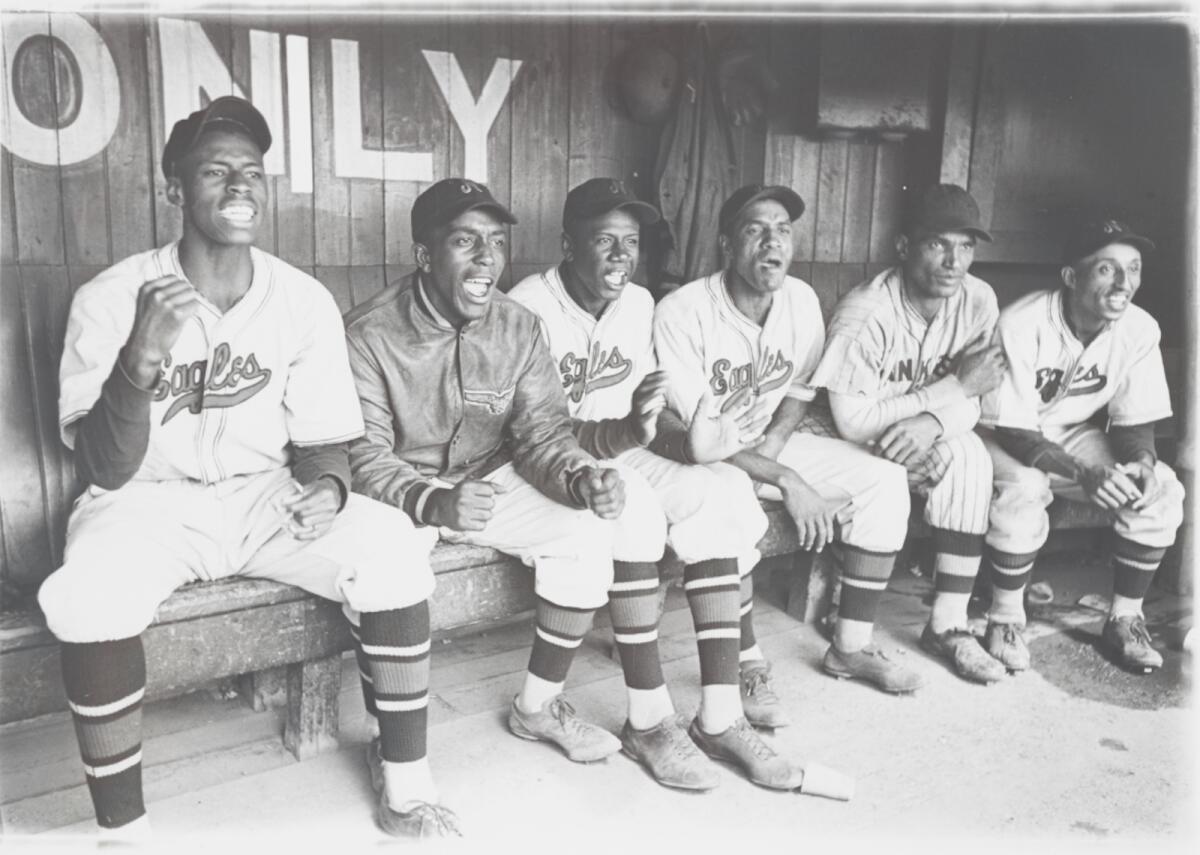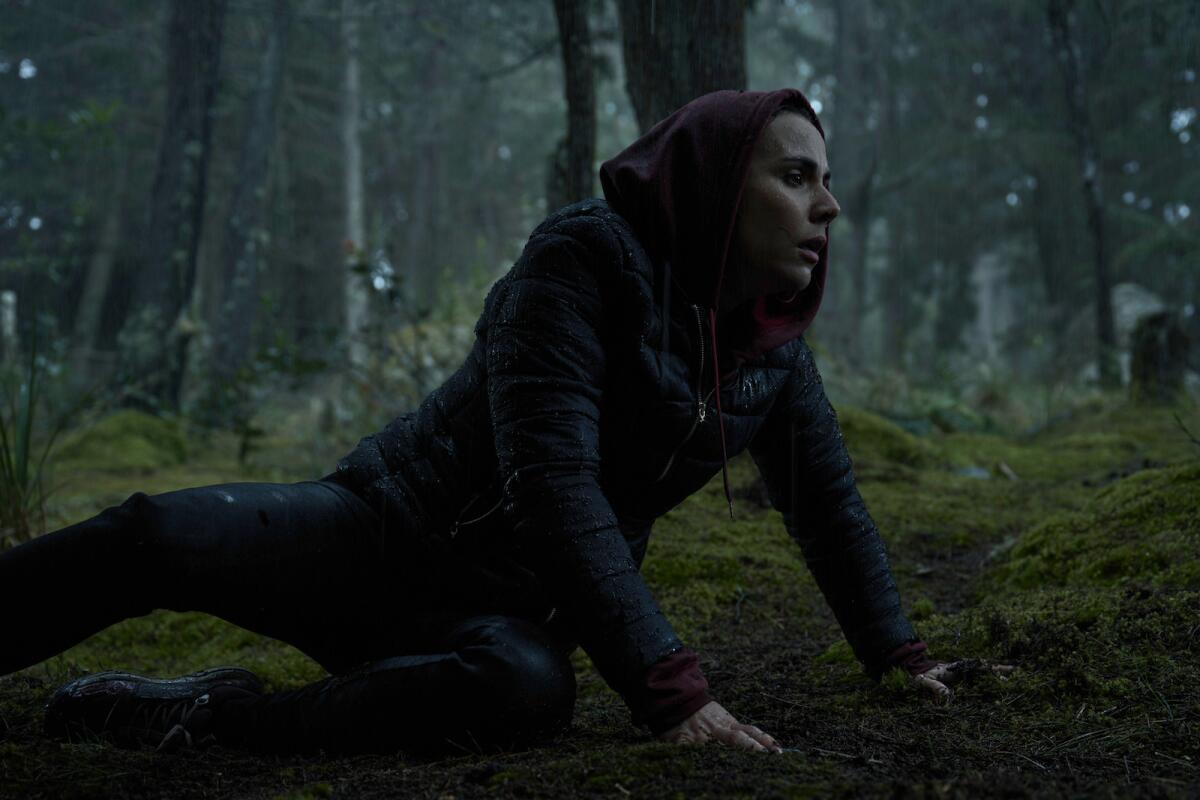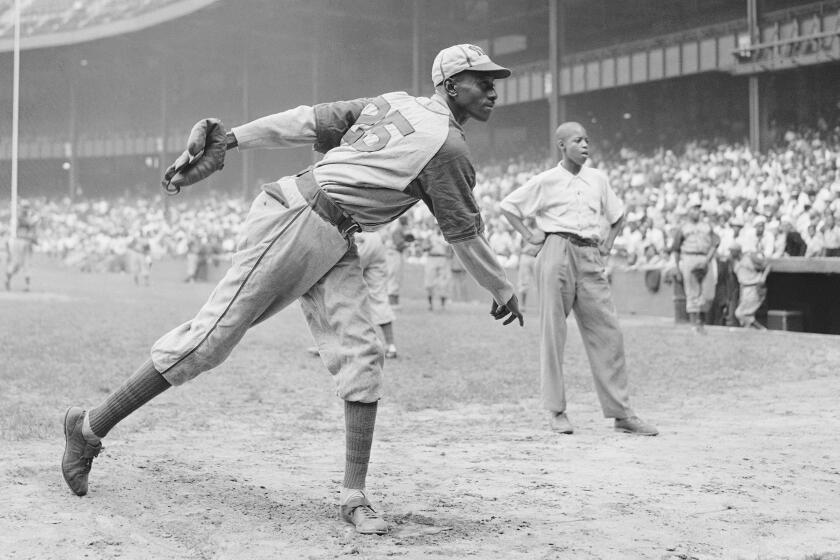Review: Sam Pollard grants the Negro leagues their essential place in American history

‘The League’
Sam Pollard’s impassioned, informative documentary “The League” covers some of the best and worst times in baseball history — mirroring some of the best and worst times in American history. The worst? In the late 19th century, when organized professional baseball began to stabilize into what it is now Major League Baseball, a so-called “gentlemen’s agreement” excluded Black athletes from participating. The best? Black ballplayers formed their own leagues, and over the decades developed a rich culture and a thrilling style of play, distinct from what the white pros had.
Since the integration of MLB led to the inevitable end to a once-vital American institution, the story of the Negro leagues has been told and retold. Most of those prior history lessons have, however, been aimed at baseball fans. “The League” is more of a primer for general audiences. Pollard reintroduces some of the game’s legendary figures, like Rube Foster (an innovator as a pitcher and as a businessman), Josh Gibson (a slugger with home run numbers comparable to the best in MLB), Satchel Paige (an incomparable ace with a big personality) and Effa Manley (an activist and entrepreneur who helped steer Black baseball through its most successful era in the 1930s and ‘40s).
More important, Pollard offers off-the-field context, because “The League” isn’t just about baseball. It’s about Black American life in the first half of the 20th century, when industrialization, two world wars and a mass migration from the South to the North led to a boost in Black economic power — and a subsequent push for widespread integration. The times were tumultuous and nothing came easy; and with each crucial social gain, something from the days of forced self-reliance was lost. Ultimately, Pollard’s film is equal parts tribute and lament, as complicated as this country.
‘The League.’ PG for thematic content involving racism, a racial slur, some violent images, and smoking. 1 hour, 43 minutes. Available July 14 on VOD; also playing theatrically, July 12, AMC Burbank 16; AMC Americana at Brand, Glendale; AMC Santa Anita, Arcadia; Laemmle Monica Film Center, Santa Monica
Reflecting on the 100th anniversary of immensely popular Negro League baseball is particularly instructive during this time of racial reckoning.

‘Quicksand’
Anyone who’s watched a lot of old cartoons and adventure movies from the mid-20th century knows all about quicksand. In fictional stories, it’s an ordinary-looking patch of earth that consumes and drowns unsuspecting hikers who flail too much after sinking into it. In reality, it’s a saturated area of soil that looks like solid ground but has the substance of a bog. In the suspense film “Quicksand” — directed by Andrés Beltrán from a Matt Pitts screenplay — the title threat mixes some of those old fictional qualities with real-world ones. When an estranged married couple, Josh (Allan Hawco) and Sofia (Carolina Gaitán), get stuck in quicksand while on a work trip in Colombia, they’re in no immediate danger of dying. But they’re also not going anywhere for a while.
As a study of a failing marriage, “Quicksand” is pretty contrived. Josh and Sofia have a lot of baggage they need to unload, so what happens? They literally end up mired in one spot for hours, face to face, where they have no choice but to talk through their problems. But Hawco and Gaitán are gifted enough actors to give a dialogue-heavy movie some layers and dynamism; and Beltrán and Pitts throw some intense challenges at their heroes, including bad weather, a poisonous snake and a terrifying corpse.
A go-nowhere subplot about criminals sneaking around the jungle pads out the running time to little effect. But “Quicksand” still mostly works on a primal level as a survival story. Here are two people, reluctantly working together, using everything at hand to escape the sucking muck. That’s the essence of drama.
‘Quicksand.’ Not rated. 1 hour, 26 minutes. Available July 14 on Shudder
‘Myth of the Zodiac Killer’
Inspired in part by a Thomas Henry Horan book, director Andrew Nock’s two-part true-crime documentary “Myth of the Zodiac Killer” takes a fresh look at a set of late 1960s San Francisco area murders that have remained officially unsolved — although countless amateur sleuths have tried to decipher the codes left by the anonymous person who claimed responsibility. Horan’s theory is that the reason no one can pin down the killer’s identity is because the crimes are unrelated; and he feels that this obsession with attributing them all to one sick criminal mastermind has hurt the victims’ families.
Nock approaches this controversy as a neutral observer, pursuing Horan’s leads as well as the path of the cryptographers. Nock makes himself a character in this documentary, which is often distracting, because his deadpan detective act (reminiscent of the controversial nonfiction filmmaker Nick Broomfield) can sometimes feel disingenuous. “Myth of the Zodiac Killer” also suffers from its standard-issue TV newsmagazine style, and from one too many visual nods to David Fincher’s movie “Zodiac.” (Granted, Nock’s crew filmed in some of the same locations and reenacted the same murders; but the similarities are still a bit much.)
Still, while the ideas behind this documentary are not novel — even among Zodiac true-believers — they are worth exploring. At a time when fringe conspiracy theories are becoming mainstream, it’s good to be reminded that compelling stories can help us make sense of a chaotic world — but that doesn’t necessarily make them true.
‘Myth of the Zodiac Killer.’ TV-MA, for language and violence. 2 hours, 10 minutes. Available on Peacock
Available now on DVD and Blu-ray
“Are You There God? It’s Me Margaret.” is one of 2023’s best films, with writer-director Kelly Fremon Craig adapting Judy Blume’s landmark young adult novel — about an anxious preteen (Abby Ryder Fortson) navigating family strife and the stresses of maturing into womanhood — in a way that respects the original’s story, characters and setting while maintaining a very modern looseness and freshness. The Blu-ray edition adds deleted scenes, a roundtable discussion and featurettes that delve into the era-specific sets and costumes. Lionsgate
More to Read
Only good movies
Get the Indie Focus newsletter, Mark Olsen's weekly guide to the world of cinema.
You may occasionally receive promotional content from the Los Angeles Times.











